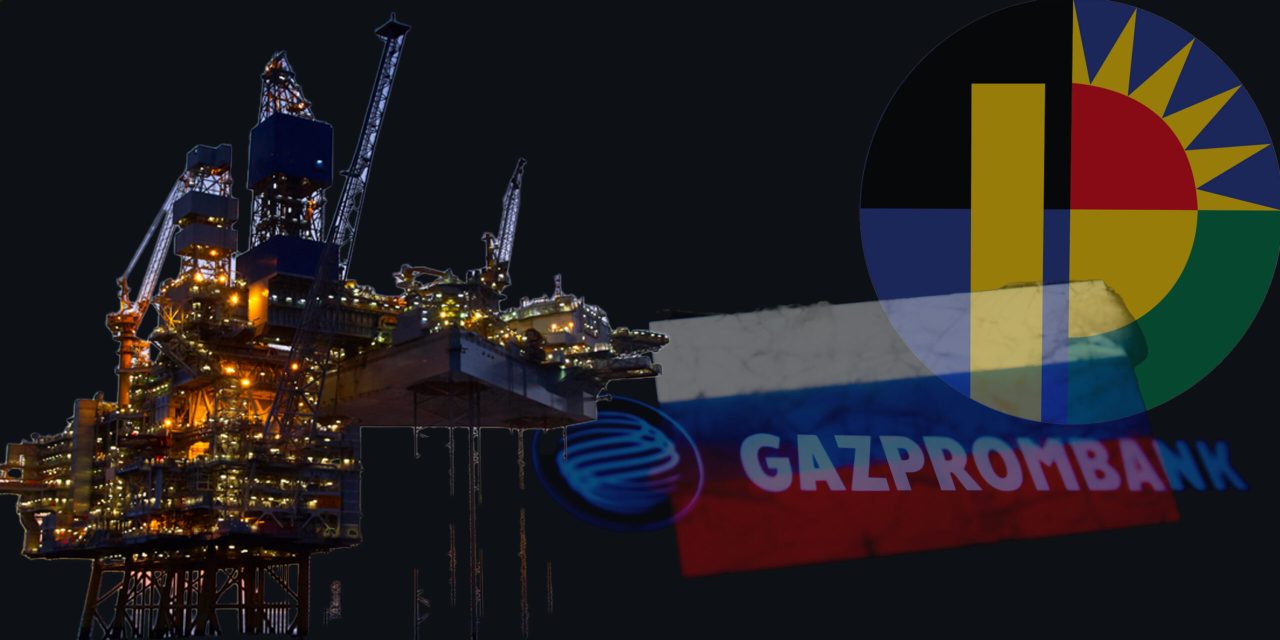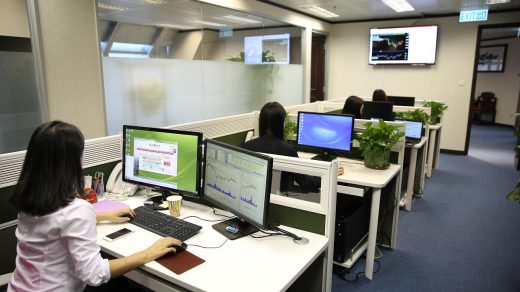

Secret. That’s how PetroSA likes its offshore gas business to be.
However, a new court case threatens to crack open its two most controversial deals: the gas-to-liquids refinery deal with Russia’s Gazprombank and the gas finance-and-infrastructure deal with businessman Lawrence Mulaudzi.
Two weeks ago, Phezulu Natural Energy Resources, a rival bidder, filed a case asking the Cape Town High Court to set aside Mulaudzi’s deal. However, in a novel legal twist, Phezulu is also demanding access to the decision-making records of the Gazprombank tender, which – it alleges – was illegally split for Mulaudzi’s benefit.
It’s a complicated story, so let me explain:
In January last year, PetroSA – the state-owned oil and gas company – issued a flurry of tenders designed to kickstart the offshore gas industry:
- RFP 0001/2023 would restart the mothballed gas-to-liquids refinery in Mossel Bay;
- RFP 0003/2023 would drill gas wells off the southern coast, and
- RFP 0004/2023 would source funding for the drilling programme.
Then PetroSA went quiet – until December, when amaBhungane reported that PetroSA was planning to award RFP 0001/2023, worth roughly R3.7-billion, to Gazprombank Africa, a local subsidiary of Russia’s state-owned gas giant.
The deal was controversial: Gazprombank had been selected after all 19 other bidders were eliminated for technical reasons. Dealing with a Russian entity, currently under Western sanctions, made it even riskier.
‘Even bigger deal’
PetroSA held a press conference defending its decision to award RFP 0001/2023 to Gazprombank, but didn’t mention that its executives planned to sign an even bigger deal as soon as they left the conference room.
In January, amaBhungane published a second exposé, showing how – hours after the press conference – PetroSA had held a private signing ceremony with Mulaudzi, which awarded his company, Equator Holdings, an expansive deal to finance and build all of the infrastructure needed to bring gas onshore.
The deal was potentially worth as much as R21.6-billion and would have made Mulaudzi an overnight oligarch. The scope of work awarded to Equator, however, strayed far outside of the original tender (RFP 0004/2023).
“It appeared that RFP 0004/2023 was potentially awarded irregularly by PetroSA to Equator as it clearly included ‘scope creep’,” Phezulu director André Cilliers told the court.
Phezulu had submitted a bid for the gas-to-liquids refinery in Mossel Bay (RFP 0001/2023), but not for RFP 0004/2023, which was supposed to be limited to sourcing finance, not building infrastructure.
After the December press conference, however, it became clear that PetroSA had split RFP 0001/2023 in two: Gazprombank would only be given the portion of the refinery that deals with liquid fuels, while the gas loop, which Phezulu was interested in, was mysteriously cut out of the deal.
Phezulu would only realise where this portion of the tender had gone when Mulaudzi came knocking at their door the following day.
“Mr Lawrence Mulaudzi from Equator contacted me personally to enquire about the technical expertise of Phezulu and its consortium and technical partners, including financial capabilities. Mr Mulaudzi and I then arranged for an introductory meeting to be held between ourselves on 13 December 2023 in Cape Town,” said Cilliers.
At a meeting the following day, Mulaudzi showed Phezulu a copy of the Gas Infrastructure agreement he had signed with PetroSA and shared a photograph of the private signing ceremony.
What Phezulu suspected was that PetroSA had taken half of RFP 0001/2023 and handed it to Equator Holdings.
“[I]t can hardly be contested that the scope of both RFP 0001/2023 and RFP 0004/2023 was irregularly and unlawfully amended to allow for the gas portion of the [gas-to-liquids] Refinery to be transferred from RFP 0001/2023 to RFP 0004/2023 or excluded from RFP 0001/2023,” Cilliers would later tell the court.
Worse, it appeared that some of the bells and whistles from Phezulu’s bid had now been offered to Equator as well.
Phezulu ‘had the skills’
As Cilliers explained, “Phezulu’s [proposal] included various elements not specifically provided for by PetroSA in RFP 0001/2023, such as additional upgrades to the [gas-to-liquids] Refinery; the complete rebuilt of ancillary critical gas infrastructure; an LNG import terminal, development and future use of domestic gas resources and a fully integrated gas-to-power energy hub solution.”
According to Cilliers, at the meeting in Cape Town, “Mr Mulaudzi stated that, at the behest and direction from PetroSA, Equator was to engage with Phezulu to comply with and satisfy the technical requirements… of the project… This was apparently due to the technical expertise and financial capability demonstrated by Phezulu … under RFP 0001/2023.”
In other words, what Cilliers is alleging is that PetroSA knew Phezulu had the technical and financial skills for the project but decided to award the project to Equator, which had neither, after which it told Equator to have a chat with Phezulu.
This, if true, is a classic example of how tenders are manipulated: an unqualified company wins the contract and then subcontracts a rival bidder that actually has the skills to complete the project.
It’s worth pointing out that neither PetroSA nor Equator have filed their replying papers in the case, so both may dispute this.
However, Equator appears to have been self-conscious about this perception, because after amaBhungane sent questions to Mulaudzi in January, he allegedly called Phezulu saying “that the Gas Infrastructure Agreement is getting a lot of attention, including from the press” and that he wanted to sign contracts with the technical partners directly, rather than going through Phezulu.
“In the words of Mr Mulaudzi,” said Cilliers, this was “to ensure that ‘Equator does not look like a middleman subcontracting the services’.”
Leaked records obtained by amaBhungane show that Equator had been one of the 20 bidders for RFP 0001/2023 but that it had scored 0 points out of 100 and was eliminated because the “[a]uthenticity of entity could not be established.” Phezulu had also been eliminated but had at least scored 67.5 points out of 100.
To add insult to injury, it later emerged that Equator was facing a liquidation application when it was awarded the contract over its failure to pay a R725,000 debt to a soccer player. In March, a final liquidation order was granted.
Discovery
Phezulu is asking the court for two things: one, to set aside the decision to award RFP 0004/2023 to Equator, and two, to force PetroSA to disclose all the documents that led to the two tenders being awarded.
Phezulu says that it has, for now, no objection to Gazprombank keeping the tender that awarded it the liquids portion of the refinery. It simply wants PetroSA to award the gas portion properly.
“A chunk of work advertised as forming part of RFP 0001/2023 was awarded under RFP 0004/2023. One can hardly imagine a more fundamental flaw in a tender process than this,” it told the court.
Critical to Phezulu’s case, it argues, is that it requires access to all records leading up to the decision to award the two tenders – documents that PetroSA has bluntly refused to disclose.
Phezulu, through its attorney, has been requesting these documents since February.
When MP Kevin Mileham submitted a Promotion of Access to Information Act (Paia) request to PetroSA in January, PetroSA refused.
In a press release in January, Mileham wrote that “based on the evidence at hand, it is safe to conclude that PetroSA may have made a predetermined decision to award the tender to Mulaudzi’s Equator Holdings, despite overwhelming evidence that the bidder did not qualify.”
In June, amaBhungane and Open Secrets submitted a joint Paia for this same information, which PetroSA simply ignored.
Phezulu, however, is using a different tactic: it argues that the documents should be disclosed as part of the discovery process of its court case. This “rule 53” disclosure – which is a standard part of such litigation — will be much harder to resist.
As amaBhungane’s advocacy co-ordinator, Caroline James, explains: “The courts have taken a dim view of litigants hiding behind spurious reasons for not providing the full record of a decision to award a tender. PetroSA’s actions go against the Constitution’s requirement of procurement transparency but also the rule of law and a respect for the legal process.”
There are two legal hurdles that Phezulu will have to clear though: one, it has waited longer than 180 days to take PetroSA’s decision on review, and so it must first ask the court to condone its late filing. And two, PetroSA has already told Parliament that it is in the process of cancelling Equator’s contract, which could weaken Phezulu’s claim that it needs access to the documents that would reveal how and why Mulaudzi’s company briefly landed the contract of a lifetime. DM
.



